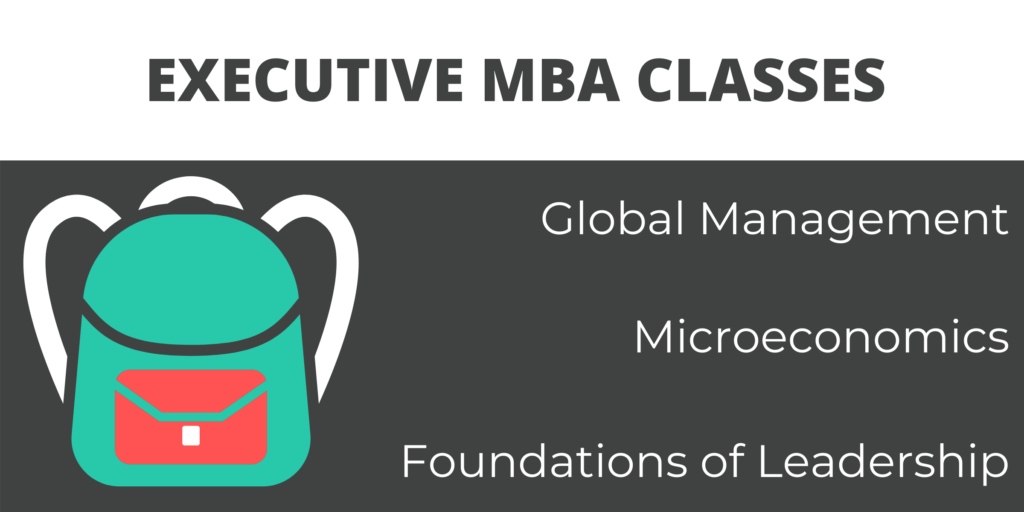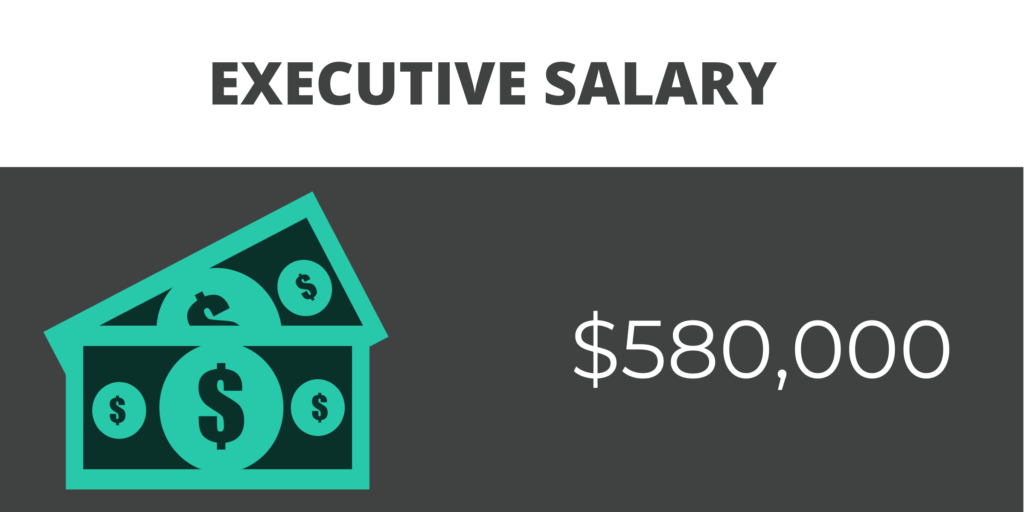In the guide below we will explore the inroads to executive MBA programs and the most promising career outcomes for students after graduation. But most importantly we delve into the components involved in reaching these promising career outcomes–what preparation is required, how to compete in the job market, and which industries are most welcoming to the freshly graduated.
But as we will discuss, the most amazing opportunities require years of planning and achievement both professionally and academic. So with that in mind, we have compiled a list of resources and guides that might help you answer any additional questions or concerns you might have.
Should I pursue a specialization in my degree program?
We will delve more deeply into the subject of MBA specialization in the guide below, but for the purposes of this FAQ it is important to note that an Executive MBA represents a specialized program to begin with, so options for additional specialization will be more limited than they would in a general MBA track, however some executive programs do offer targeted curriculums such as an Executive MBA in Entrepreneurship or an Executive MBA in Supply Chain Management.

Top-level leadership in niche industries and technical professions are often expected to demonstrate a high level of specialization within their chosen field. So students will be well-served by pursuing specializations that reflect their career goals. Consider beginning the specialization process as early as possible in your Bachelor’s degree program, early employment, or internships.
What type of background should I have to enroll in an Executive MBA?
Executive MBA programs are among the most demanding programs in higher education in terms of prerequisites. Most Executive MBA programs require at least six years of successful work history in business, which is typically measured from the time after graduating from an undergraduate business program.

Prospective students of an Executive MBA program will need to have earned a Bachelor of Business. And given the clout conferred by an Executive MBA program, students will want to work to earn their Bachelor of Business from a prestigious and well-known business school–but don’t worry, we have compiled a list of your best options below. Many of which can be completed from the comfort of your own home.
MBA Programs: General Questions and Concerns
- What Can I Do with an MBA?
- Can I Get an MBA With Only a Liberal Arts Degree?
- Career Outlook For MBA’s
- Closing the Gap: The Rise of Women in MBA Programs
- How Quickly Can I Get an MBA?
- How to Choose a Quality MBA Program
- How To Choose An MBA Specialization
- International MBAs Vs Domestic MBAs
- Is an MBA Right for Someone Without a Business Degree?
- Should I Get an MBA Online?
- The Ultimate MBA Guide for Military Veterans
- What Career Can I Expect With an MBA?
- What is an MBA?
Best Online Business Degree Opportunities by State
- Online Business Degree Opportunities: Arizona
- Online Business Degree Opportunities: Georgia
- Online Business Degree Opportunities: Illinois
- Online Business Degree Opportunities in California
- Online Business Degree Opportunities in Florida
- Online Business Degree Opportunities: Indiana
- Online Business Degree Opportunities: Massachusetts
- Online Business Degree Opportunities: Michigan
- Online Business Degree Opportunities: New Jersey
- Online Business Degree Opportunities: New York
- Online Business Degree Opportunities: North Carolina
- Online Business Degree Opportunities: Ohio
- Online Business Degree Opportunities: Pennsylvania
- Online Business Degree Opportunities: Texas
- Online Business Degree Opportunities: Virginia
- Online Business Degree Opportunities: Washington
MBA Specializations
- What Can I Do with a Cyber and Information Security MBA?
- What Can I Do with a Healthcare Administration Master’s Degree?
- What Can I Do with a Master’s in Project Management?
- What Can I Do with a Master’s in Management?
- What Can I Do with a Sports Management Master’s Degree?
- What Can I Do With an International Business Management Degree?
- What can I Do with an IT Management Degree?
- What Can I Do with an MBA in International Business?
Best Business Program Rankings
MBAs
- The 10 Best Online Entrepreneurship MBA Degree Programs
- The 10 Best Online Finance MBA Degree Programs
- The 10 Best Online Human Resources MBA Degree Programs
- The 10 Best Online Marketing MBAs
- The Best Online Real Estate MBA Degree Programs
- 10 Best Online Supply Chain Management MBAs
- 15 Best Online Cyber and Information Security MBA Degrees for 2021
- 15 Best Online MBA Degree Programs for 2020
- 15 Best Online MBA in International Business Degrees for 2021
- 25 Best Campus MBA Degree Programs for 2020
- 25 Best Cyber and Information Security MBA Degrees for 2021
- 25 Best MBA in International Business Programs for 2021
Master’s
- 10 Best Master’s in Supply Chain Management Degree Programs
- 15 Best Online Master’s in Accounting Degrees for 2020
- 10 Best Online Masters in Healthcare Management Degree Programs
- 15 Best Online Healthcare Administration Master’s Programs for 2020
- 15 Best Online Master of Public Administration for 2020
- 15 Best Online Master’s in Entrepreneurship Degrees for 2021
- 15 Best Online Master’s in Project Management for 2020
Bachelor’s
Associate’s
Fastest Business Program Rankings
- 10 Fastest Online Cyber and Information Security MBA Degrees for 2021
- 10 Fastest Online International Business MBA Degrees for 2021
- 10 Fastest Online MBA Degree Programs for 2020
- Accelerated MBA Programs
Most Affordable Business Program Rankings
- 10 Most Affordable Cyber and Information Security MBA Degrees for 2021
- 10 Most Affordable International Business MBA Degrees for 2021
- 10 Most Affordable Online MBA Degree Programs for 2020
- 10 Most Affordable Sports Management Bachelor’s Degrees for 2020
- 10 Most Affordable Sports Management Master’s for 2020
What is a Business Executive?
Business executives sit at the head of companies around the world and govern the actions of their companies in the day to day. If business were a ship then the business executive would be the captain of the ship. And like ocean faring captains, business executives must be prepared to navigate their organization through all the storms and dangers of the free market economy.

The exact role that a business executive fills will depend entirely on three things:
- The industry of the organization they are responsible for
- The size of the organization
- The type of the organization
For example, the role of a business executive who runs a small nonprofit business will be totally different from the role of an executive at the head of a large international conglomerate. Even large companies will have executives filling totally different roles depending on the industry, such as how executives of logistics companies will perform vastly different functions compared to an executive of a tech company in Silicon Valley.
These points are made only to demonstrate that the necessary preparation needed to succeed as a business executive will necessarily depend on one’s desired end goal for one’s career. In short, the education and training for a business executive is the primary determinant of where they can go and what they can do professionally.
So with that in mind, let’s delve a little deeper into the education of an Executive MBA.
What is an Executive MBA?
An Executive Master’s of Business Administration or an EMBA is a two year graduate program designed for business leaders who want to pursue further professional advancement. There is a certain pedigree implied in business education and an EMBA is undoubtedly at the top.

While a graduate of a Bachelor of Business program might go on to take on a position of leadership after graduation, a graduate of an EMBA program might go on to become CEO of a billion dollar company. There is nothing to say that a Bachelor of Business student can’t go on to achieve the same heights, but an EMBA is designed specifically so that students will achieve such heights.
Much like a traditional MBA degree an EMBA program is typically completed over a two-year period, however an EMBA is designed specifically with business leaders in mind. As a result, students can expect a curriculum built around foundational concepts in leadership and management:
- Enterprise Leadership
- Management Communication
- Organization Management
- Responsibilities in Global Management
Students will also delve deeply into the core topics of a general MBA, though many of these topics will be framed within the context of business management:
- Branding Strategy
- Business Analytics
- Business Technology
- Corporate Finance
- Managerial Accounting
- Marketing
- Market Research
- Macro-Economics & Global Economics
- Micro-Economics
- Negotiations & Contracts
- Regression Analysis
- Risk Management
- Sales Management
Particular EMBA programs may differentiate themselves by offering a curriculum focus in a key area. These focused EMBA programs may be a great option for students who wish to work toward a professional specialty without putting all their eggs in one basket, as students do when they enroll in a specialized EMBA program–but more on that later (in the section addressing Executive MBA Specializations).
Who Should Consider an Executive MBA?
An EMBA is an excellent opportunity for experienced business professionals to hone skills, polish resumes, and sharpen competitiveness in the job market. While there are millions of positions for business professionals, only a fraction of the available opportunities represent positions of management–such is the nature of leadership, the few lead the many.

For this reason, the competition between business executives for top tier positions is fierce and unforgiving. An executive with a decade of experience in the tech industry will beat out the executive looking to switch industries, nine times out of ten. Seniority is a major determinant in the professional outlook for individual executives and an EMBA is an excellent way to demonstrate seniority.
EMBAs require roughly six year business experience after graduation from a Bachelor’s of Business program (typically four years). So all told, this represents a requirement of ten years of business experience. For this reason the EMBA degree confers a tremendous amount of clout, and graduates of these programs go on to work in the most esteemed positions in business.
So for any prospective student or ambitious professionals who wants to work at the top of their field, an EMBA should be at the top of the list of considerations, particularly for those who feel their career trajectories do not match their talents and abilities. An EMBA is the decisive opportunity to demonstrate business leadership and to cultivate the professional networks that will enable graduates to put those skills to use in high-end business.
What are the Requirements for an Executive MBA Program?
As discussed in the sections above, the requirements for an Executive MBA program range from extensive to exclusive. In other words, some programs require more than just six years of business experience, requiring instead that applicants demonstrate six to ten years of successful business management.

Though as you might expect, the programs with the most stringent requirements also offer the most in terms of prestige, professional networks, and academic clout. The best EMBA programs, for instance, offer internship opportunities at some of the largest and most prestigious companies in the world. The opportunities offered by these programs often represent such valuable professional inroads that the only way to limit applicants is to have astronomical prerequisites.
On the other hand, some EMBA programs tailor application requirements and program curriculum to accommodate students who demonstrate success in business leadership but who may not have traditional backgrounds in business. These programs often allow for substitutes in certain areas–for example they may not require applicants to hold a Bachelor of Business if they have held a management position for two years.
The overall takeaways break down into something like this:
- The most prestigious EMBA programs have the most exclusivity
- High end EMBA programs almost always lead to high end employment
- High end EMBAs leave little room for distraction from business leadership
- More flexible EMBAs accept students with various academic and professional backgrounds
- The trade-off for flexible EMBAs is that they must spend more time ‘bringing students up to speed’ in terms of business management curriculum
- In summation, there is an EMBA program for students of virtually any level of business savvy–but only to a point, as quality EMBAs always have high requirements
- Be wary of any EMBA that asks for no requirements of its applicants
Executive MBA Specializations
Executive MBA specializations will come in one of two different formats. One option is for the specialization to be offered directly through the degree program, such as an EMBA in Supply Chain Management. Another option is for the specialization to be conferred by optional coursework, research projects, and electives. A third but less appealing option is to establish a desired specialization through earning an additional degree, such as a student who enrolls in an IT program after completing an EMBA–a route that will not be tenable for most students.

With that being said, most EMBA programs will offer electives, research projects, and internship opportunities that will give students the freedom to build specialty in a key area. If this level of specialty will not meet the requirements of your desired area of expertise, consider enrolling in an EMBA program that specifically targets your desired expertise.
EMBA degree specializations are available in pretty much every subject of study within an MBA curriculum. Specifically, EMBA students can expect options to build expertise in any other following popular concentrations:
- Accounting
- Business Intelligence
- Corporate Finance
- Data Science
- Entrepreneurship
- Innovation
- Finance
- Financial Instruments and Markets
- Global Business
- International Business
- Leadership
- Logistics
- Management
- Marketing
- Operations
- Quantitative Finance
- Real Estate
- Sales Management
- Strategic Management
- Supply Chain Management
- Technology
Industry Trends and Opportunities for Business Executives
As discussed in the sections above, the EMBA is a designation of seniority in the business leadership industry. Seniority as it turns out is a major element of executive employment trends–where the average age of business executive hires is in the mid-fifties. The age of executive hires is trending upwards as well, which implies that companies are looking to professionals with the most experience when hiring executives.
This is a major argument for the cruciality of an EMBA when pursuing the position of executive. An EMBA might be one of the only ways to make yourself stand out to companies who are otherwise only considering the most experienced leaders. The subject breaks down like this:
- The average age of an executive is in the mid fifties
- Many industries are looking to young, savvy executives who can capitalize on new trends
- Young executives often utilize a variety of tools and technology to make themselves more productive and efficient
- EMBAs help candidates demonstrate seniority
Another major trend to consider is that business executive positions are becoming increasingly global, both in role and competition. Long gone are the days when American corporations only hired United States citizens, and likewise many opportunities for American EMBA graduates are available in adjacent countries and even overseas.
This means that prospective business executives should ensure that they are building global business savvy as well as any cultural expertise needed to enter into a position of leadership within their chosen market. Similarly, professionals will want to build professional experience within the geographical or cultural location of said market. For example, someone looking to work in business management in Europe will need to pursue internship opportunities in the appropriate sector of the European market.
Business Executive Job Market: Profile and Projections
Given the inherent exclusivity of an executive’s position, it may be surprising that there are more than 2.7 million executive positions with the United States job market. This means that while the investment required to earn an EMBA is high, there is certainly an abundance of opportunities that justify the expenditure.
Another point concerning the health of the industry is the rate of growth for executive positions. According to the Bureau of Labor Statistics the job market for executives is growing at a rate of 4% which mirrors the average rate of all jobs within the United States. This growth rate makes sense when you consider that new executive positions are created as new companies are established and new ventures grow to warrant the employment of executives. In other words, executive positions seem to grow along with the growth of the economy–which is reassuring for professionals who want to ensure their longevity of their careers.
Let’s break down the industry profile as provided by the BLS:
- 2,774,300 Executives in 2019
- Job market growing at a rate of 4% (commensurate with national average)
- This equates to an influx of about 115,000 new executive positions over next 10 years
- Median Salary of about $105,000 per year
- Hourly wage equates to about $50.33 per hour
- Executives typically hold at least a Bachelor’s degree
- Executives typically have 5 years of professional experience
One major note to make here is that the BLS reports the most common degree holding for entry level positions is a Bachelor’s degree. So while high end positions may have more extensive degree and experience requirements, students should not shy away from pursuing executive positions early.
Holding an executive position early in one’s career is an excellent way to ensure that one reaches the best career outcomes. Speaking of, let’s break down some of the best career outcomes for executives:
Earning Potentials
- The lowest 10% of executives earned $62,290
- The top 10% of executives earned $208,000
Top Performing Industries for Executives
- Manufacturing
- Median Annual Salary – $208,000 or more
- Professional, scientific, and technical services
- Median Annual Salary – $208,000 or more
- Healthcare and social assistance
- Median Annual Salary – $166,410
- Government
- Median Annual Salary – $110,230
Top Performing Sectors of the Job Market for Executives
- Chief Executives
- Median Annual Salary – $184,460
- Other Management Positions
- Median Annual Salary – $105,660
- Top Executives
- Median Annual Salary – $103,230
- General and Operations Managers
- Median Annual Salary – $100,780
There are some notable takeaways here to discuss. But perhaps most notable is that the potential for professional advancement and salary-increase is enormous, particularly within the industries of Manufacturing and Professional, scientific, and technical services.
Similarly, the promotion from executive to chief executive represents a potential raise of more than 80% which is a tremendous incentive for business executives to consider an EMBA. Another notable figure is that executives employed by the government make significantly less–less than half of what executives make in higher performing industries.
But for the most part these figures tell a promising story: no matter where you choose to go with your EMBA the skies are clear and the horizon holds countless opportunities.
Carrie Morris
Author
Warren Dahl
Editor-in-Chief

